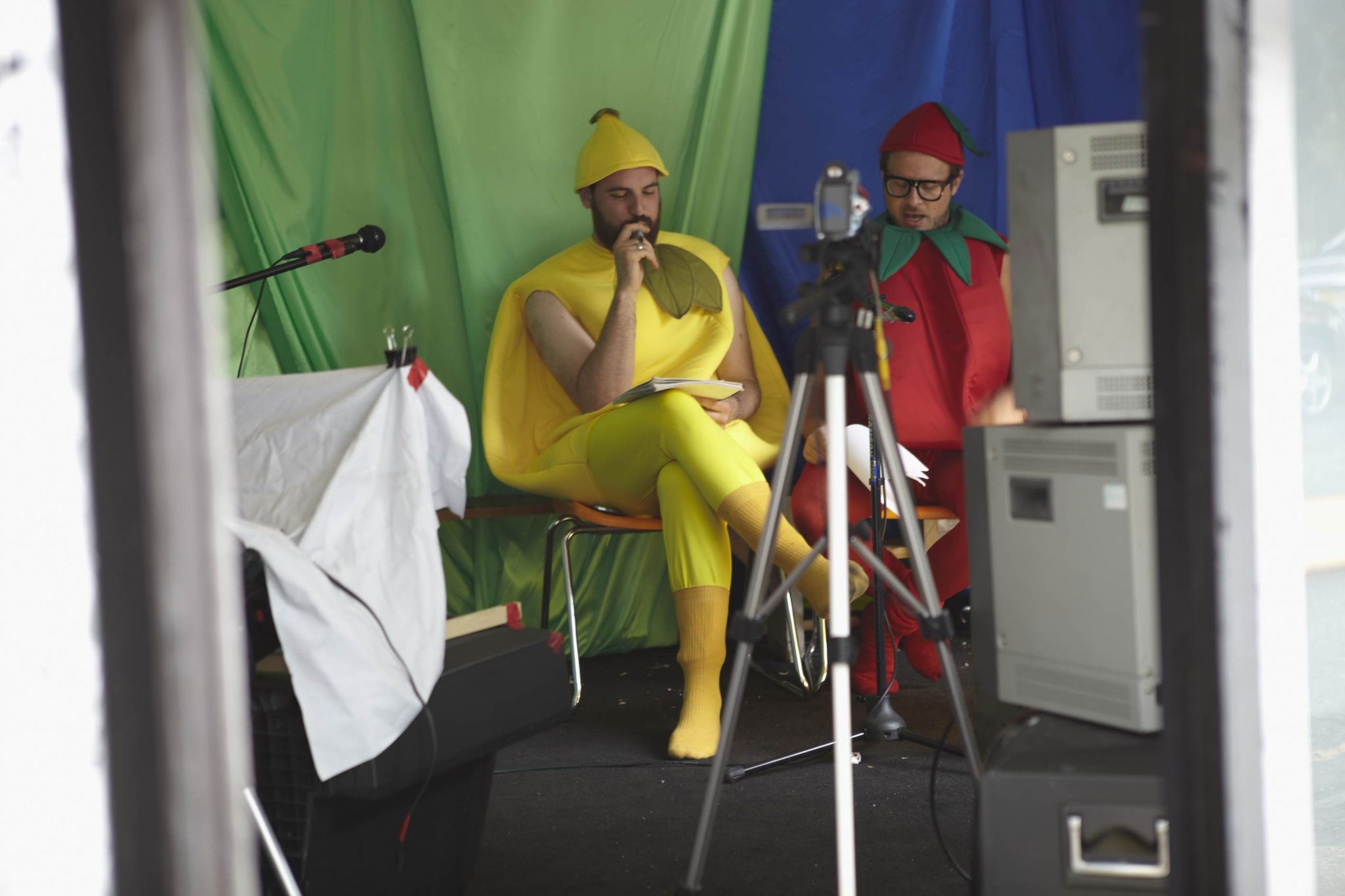For the next stop on its tour of alternative art venues, ArtReview’s off-space roadtrip sped back from Sheffield (see issue 53) to London’s Old Kent Road, cheapest property on the Monopoly board. I arrived on a Friday evening in August to find the view through the glass front of Auto Italia South East, an expansive gallery and events space housed in a former car showroom sandwiched between a DIY warehouse and an evangelical church, impenetrable with condensation.
Inside, cramped masses – sitting cross-legged on the floor and leaning against the walls, their numbers far exceeding the auditorium’s complement of folding chairs – gathered for the first of the gallery’s We Have Our Own Concept of Time and Motion series of events and workshops, for a discussion between theorists Mark Fisher and Marina Vishmidt. With the London riots fresh on the minds of the audience, which included a volatile mix of artists and leftwing activists, the evening had the rollercoaster qualities of political passion and discussion-group frustration. Fisher, the author of Capitalist Realism (2009), and Vishmidt, currently conducting PhD research on ‘speculation as a mode of production in art and capital’, were ostensibly there to talk about whether art might be able to act as a catalyst for a postcapitalist future. Yet the specifics of their prepared notes turned out to be the least discussed element of the whole event. Instead the organisation itself, and the role galleries like it play in the current social model, came under intense scrutiny. One of the first, densely theoretical questions raised by Richard John Jones, chair for the evening, was whether self-organisation (Auto Italia is artist-run) is a means for achieving some sort of postcapitalist autonomy within the context of a prevailing neoliberal political system. Might a self-organised operation act as a template for a wider alternative political model? Could larger organisations (say, local government bodies) act in the same way as Auto Italia, with the same level of freedom it enjoys?
Founded four years ago in another former car showroom in neighbouring Peckham, Auto Italia is a wholly collaborative venture. It has three core coordinators, with exhibitions and talks bringing in an entire network of collaborators. Shows generally feature artists without gallery representation; events are characterised by political relevance and timeliness; and the occasional music festivals hosted in the gaping venue are raucous, hipster affairs involving the likes of Matmos and Lucky PDF. Yet in that collaboration, and the multifarious interests of these ‘stakeholders’ – artists, activists and hipsters (and all the crossovers therein) – comes the kind of tension seen on that sweaty Friday evening.
The fallout from having all these disparate protagonists in the same room was evident by the time it came to audience questions, and was played out further over Twitter afterwards. Some of the far-left activists complained that to have any discussion on exiting the state of capitalism in something as inherently gentrifying as an art gallery was hypocritical. Fisher, for his part, retorted, sardonically, that if that were the case, perhaps such events should take place far away from where ‘locals’ might see them. Others pointed to the fact that their hosts were now state-funded (having become one of the Arts Council England’s ‘national portfolio’ organisations, with an annual £50,000 budget), and questioned whether this was counter to the notions of autonomy being discussed. Yet while there may have been some pertinent political points made in the discussion, they were largely lost in the cacophony of mudslinging. It would seem that the audience, or at least its most vocal elements, had not heeded Vishmidt’s opening warning against the fetishisation of the material conditions of the self-organised organisation. Instead, if one dared to discuss anything from a perspective other than that engendered by the confines of a Bloomsbury squat, public-space occupation or cult blog, it was branded heretical by some elements of the left present that evening.
Despite the rhetoric of choice, neoliberal capitalism often proves a reductive model, confining one to one’s own (in)vested interests and those who share them. Yet the activist camps of the left seem to perpetuate this system within their own models of self-organisation, banning anything that appears different to their own modi operandi. Auto Italia, by using collaboration (and indeed government funds), with all its internal antagonisms, to bring together a diverse set of interests, finds strength through critical mass. More recently Auto Italia has set up a series of live art broadcasts involving artists working with a full camera crew, lighting technicians, directors, performers, production designers and set builders, in an effort to expand beyond the steamy room. The fact that the government’s £50k might have helped with this project and given the place a lick of paint seems somewhat irrelevant.
This article originally appeared in the December 2011 issue.
